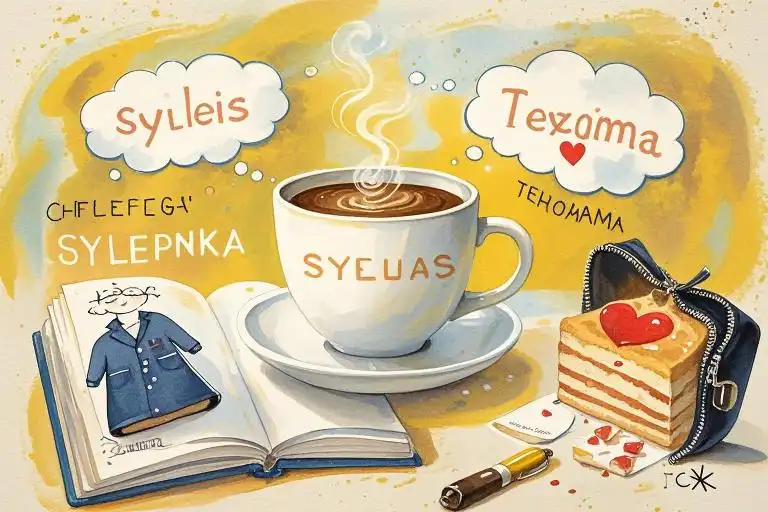The other morning, as I fumbled with coffee and a crossword puzzle, my teenager leaned over the kitchen counter and asked, “Dad, can you explain sarcasm again? Is it like… grammar with attitude?” I nearly spat out my latte. Kids, I’ve learned, are linguistic landmines. One minute they’re texting in hieroglyphic emojis; the next, they’re dissecting figures of speech like tiny professors.
But here’s the twist: adults struggle with words too. Take me, for instance. Last month, I spent hours arguing with a thesaurus over whether “unzip my patience” counts as syllepsis or just bad parenting. (Spoiler: It’s both.)
When Grammar Gets Sneaky
Let’s cut through the jargon. Syllepsis and zeugma aren’t exotic birds or rare diseases—they’re linguistic acrobats. Think of them as wordplay’s answer to a magician’s sleight of hand:
- Syllepsis: One verb, two meanings.
Example: “She drove to work and her coworkers up the wall.”
Here, “drove” shifts gears from literal (steering a car) to metaphorical (irritating people). - Zeugma: One verb, two logical partners.
Example: “He stole my wallet and my dignity at the office party.”
The theft is literal (wallet) and abstract (dignity), but the verb “stole” binds them like duct tape.
Still fuzzy? Join the club. Even Dickens tripped over these. In Great Expectations, Miss Havisham “dressed her wounds and her resentment every morning.” Classic syllepsis—unless you’re Team Zeugma. Cue the grammarian fistfights.
A Wedding, a Whisky, and a Life Crisis
Let’s dissect my favorite real-world example—a friend’s wedding saga that’s equal parts Shakespearean tragedy and TikTok comedy:
“At the reception, Greg consumed three gin tonics, two shrimp skewers, one ex’s phone number scribbled on a napkin, seven minutes of existential dread, his best man’s dignity, a Uber ride he’ll regret, and—somewhere between the open bar and the parking lot—a sudden craving for monastic solitude.”
Here’s the breakdown:
- Literal Consumption: Drinks, food.
- Abstract “Consumption”: Emotions, poor decisions.
- The Punchline: The verb “consumed” morphs from physical to psychological, then nose-dives into absurdity.
Why this works:
- Humor through contrast: Shrimp vs. existential dread.
- Rhythm: Short phrases (“three gin tonics”) vs. winding clauses (“sudden craving for monastic solitude”).
- Surprise: Readers expect a typical party anecdote—boom, existential crisis.
How to Spot the Difference (Without Losing Your Mind)
Confession: I once diagrammed sentences at 2 a.m. wearing a Sherlock Holmes hat. Don’t be me. Use this cheat sheet instead:
| Clue | Syllepsis | Zeugma |
|---|---|---|
| Verb Behavior | Changes meaning mid-sentence | Same meaning, different targets |
| Trickery Level | “Dad joke” subtlety | “Plot twist” obviousness |
| Best For | Witty headlines, ironic social posts | Emotional writing, satire |
Still stuck? Try the “Swiss Army Knife Test”:
- If the verb feels like a multitool (unzip a file and a secret), it’s syllepsis.
- If the verb acts like glue (took a pill and a vacation), it’s zeugma.
Why Bother? (Besides Impressing Your Cat)
These devices aren’t just for Shakespeare wannabes. They:
- Save word count: Why write two sentences when one does the job?
- Add layers: Humor, irony, or depth without sounding pretentious.
- Engage readers: Surprise = dopamine hit.
Pro tip: Use them sparingly. Overdo it, and you’ll sound like a thesaurus threw up on your keyboard.
Your Turn: Play Grammar Detective
Let’s practice. Which is which?
- “She broke his heart and his PlayStation controller.”
- “I lost my keys, my temper, and all hope by noon.”
(Answers: 1. Zeugma—same “broke” logic. 2. Syllepsis—“lost” shifts from literal to abstract.)
Final Thought: Embrace the Chaos
Words, like toddlers, thrive on mischief. The beauty of syllepsis and zeugma isn’t in rigid rules—it’s in their flexibility. Next time your kid says, “Dad, can you fix my bike and my broken dreams?” smile. You’ve just witnessed language’s magic trick.
And if you still mix them up? Welcome to the club. We meet Wednesdays at the pub. First round’s on whoever opens the tab and old emotional wounds.

